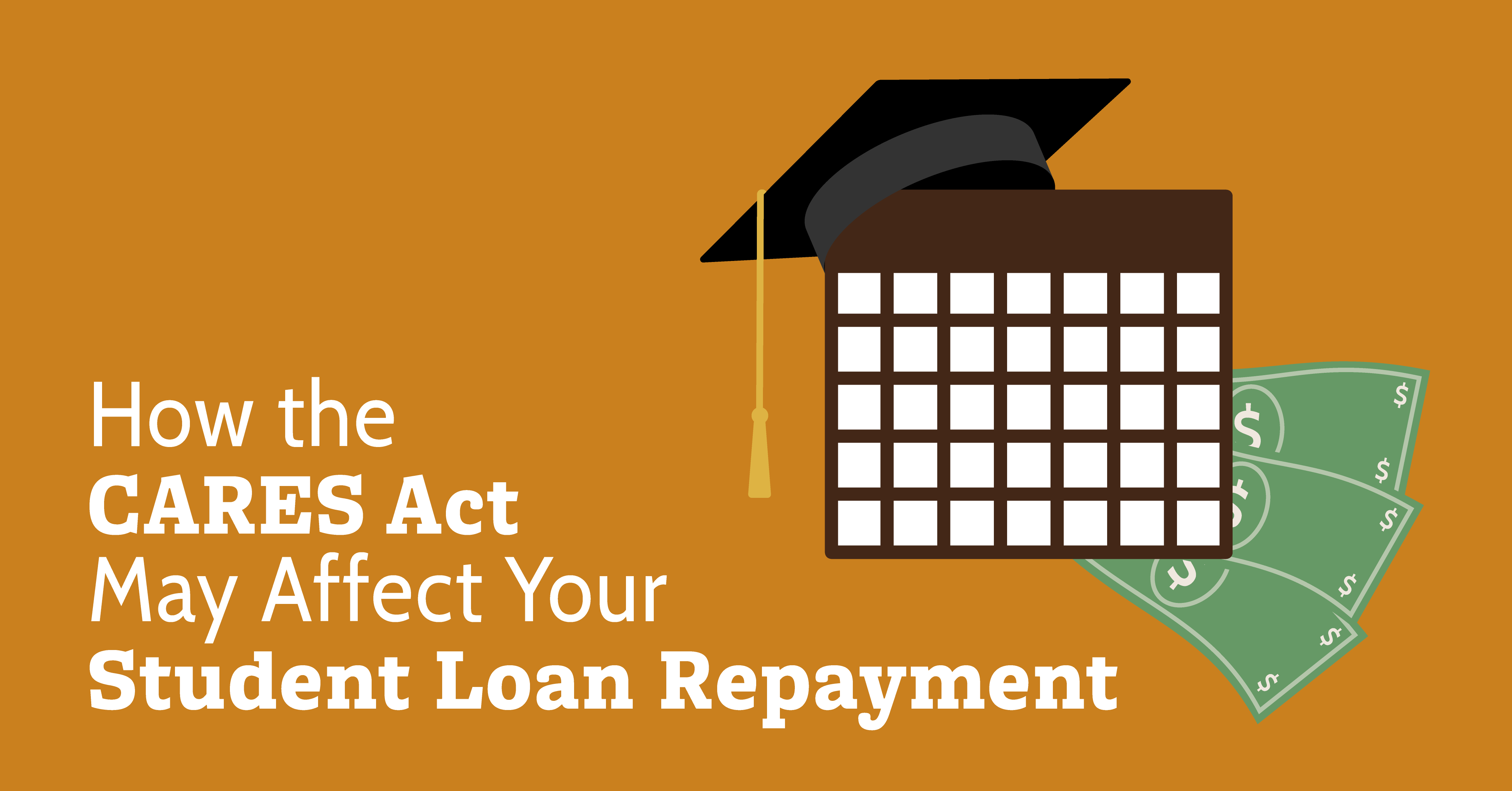
June 3, 2020
In March 2020, the CARES Act was signed into law to bring economic relief to American citizens everywhere. As a part of this relief, federal lenders have placed all federal student loans on administrative forbearance from March 2020 to September 2020. This means that all payments have been postponed and interest is temporarily set at 0%.
This change occurs automatically and doesn’t require a forbearance request by the borrower. However, it is recommended to check the status of your loan to be sure you qualify. If you are unsure your loan qualifies, check with your loan servicer. Once you’ve assessed your loan situation, consider the best action to take to meet your immediate needs and long-term financial goals. We’ve recommended a few options below. Pick what meets your financial needs or talk to your loan servicer to hear other options they may offer.
This forbearance period is meant to be a time of relief for those experiencing economic hardship. If that’s you, consider utilizing this monthly savings to build or rebuild your emergency fund, minimize non-essential expenses, and prepare for September when your payment schedule resumes. When reconsidering your budget, think about setting aside some money for your loan repayment, if possible, so that when payments return you are ready to go. If you’re not sure where to get started with your budget, check out our Budgeting 101 blog post.
Federal student loans are the only loans to make this automatic switch to forbearance status. If you have private student loans, you may qualify for administrative forbearance. Check with your lender or loan servicer to explore forbearance or relief options they offer as part of their COVID-19 response. Beware of scams that require payment for loan assistance. Help for your student loans does not require payment and never should.
Refinancing could give you a lower monthly payment and possibly help you pay off your loan sooner in the long run. Only refinance if the loan reduces the interest rate. It could be smart to wait to refinance until after this six-month period because refinancing a federal loan would remove the forbearance period. However, depending on your loan situation, it could be smart to refinance your private loans or wait until October to refinance all of them together.
If your finances are still flowing as smoothly as before this pandemic, consider paying your monthly payments anyway. Double check with your loan servicer to confirm, but every payment you make to your loan during this time should be applied directly to your principal, which would mean less interest and a faster payoff period than waiting out the six months.
Even though times are tough, this relief period can provide the opportunity to get ahead or realign your finances to better accomplish your goals. There are plenty of places to turn in this time of crisis and here at Citizens First Bank we are always here to help. If you are facing financial hardship or in need of assistance, please contact your local branch.